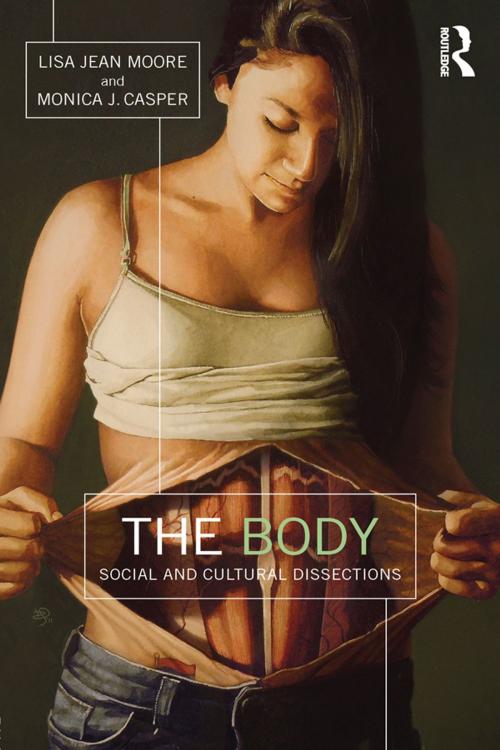The Body
Social and Cultural Dissections
Nonfiction, Social & Cultural Studies, Social Science, Sociology| Author: | Lisa Jean Moore, Monica J. Casper | ISBN: | 9781136771798 |
| Publisher: | Taylor and Francis | Publication: | November 6, 2014 |
| Imprint: | Routledge | Language: | English |
| Author: | Lisa Jean Moore, Monica J. Casper |
| ISBN: | 9781136771798 |
| Publisher: | Taylor and Francis |
| Publication: | November 6, 2014 |
| Imprint: | Routledge |
| Language: | English |
This college-level handbook offers a comprehensive and accessible overview of sociological and cultural perspectives on the human body. Organized along the lines of a standard anatomical textbook delineated by body parts and processes, this volume subverts the expected content in favor of providing tools for social and cultural analysis.
Students will learn about the human body in its social, cultural, and political contexts, with emphasis on multiple, contested meanings of the body, body parts, and systems. Case studies, examples, and discussion questions are both US-based and international. Advancing critical body studies, the book explicitly discusses bodies in relation to race, class, gender, sexuality, ability, age, health, geography, and citizenship status. The framing is sociological rather than biomedical, attentive to cultural meanings, institutional practices, politics, and social problems. The authors use commonly understood anatomical frames to discuss social, cultural, political, and ethical issues concerning embodiment.
This college-level handbook offers a comprehensive and accessible overview of sociological and cultural perspectives on the human body. Organized along the lines of a standard anatomical textbook delineated by body parts and processes, this volume subverts the expected content in favor of providing tools for social and cultural analysis.
Students will learn about the human body in its social, cultural, and political contexts, with emphasis on multiple, contested meanings of the body, body parts, and systems. Case studies, examples, and discussion questions are both US-based and international. Advancing critical body studies, the book explicitly discusses bodies in relation to race, class, gender, sexuality, ability, age, health, geography, and citizenship status. The framing is sociological rather than biomedical, attentive to cultural meanings, institutional practices, politics, and social problems. The authors use commonly understood anatomical frames to discuss social, cultural, political, and ethical issues concerning embodiment.















